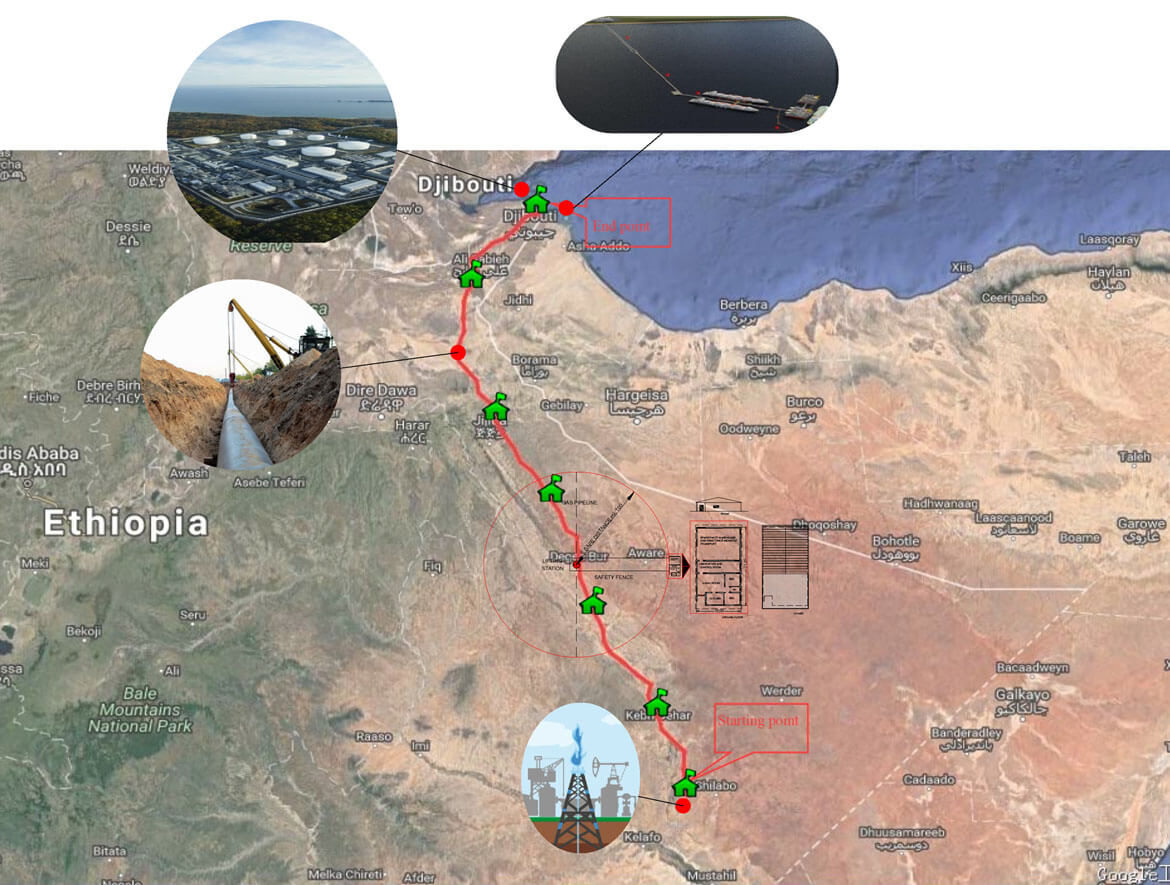
Ethiopia–Djibouti Gas Pipeline is a proposed natural gas pipeline, running from Hilala gas field in Ethiopia to Djibouti.
Location:
The pipeline would run from the Hilala gas field in Somali region, Ethiopia, to Damerdjog, Arta region, Djibouti.
Background:
In February 2019, Ethiopia and Djibouti signed a memorandum of understanding for the construction of a $4 billion, 767-km natural gas pipeline from the Hilala and Calub gas fields in Ethiopia’s Somali (formerly Ogaden) region, to a new port east of Djibouti City in Djibouti. The pipeline would be built by Chinese firm GCL–Poly, which is also developing the gas fields. The pipeline would transport 12 billion cubic meters per year of gas, of which 10 billion cubic meters would be exported to China. At the time, GCL-Poly said it expected exports to begin in 2021.
Ethiopia’s Parliament approved the pipeline’s construction in December 2019. Djibouti plans to build the Djibouti LNG Terminal in Damerdjog to export the gas.
Proposed route through Somaliland:
In October 2018, Somaliland’s Minister of Energy and Minerals proposed that Ethiopia build a gas pipeline to Somaliland’s port city of Berbera, rather than to Djibouti. This route would be only 400 km, and would avoid Ethiopia’s Ahmar Mountains. However, Somaliland is a breakaway province of Somalia and an internationally unrecognized state, and would thus involve geopolitical complications. As of 2019–20, it appears that Ethiopia is focusing on building the pipeline through Djibouti.
Environmental issues:
Poly-GCL has been exploring for oil & gas in the Ogaden Basin since 2014. In years since then, a number of villagers living in surrounding villages have grown sick and even died from a mysterious sickness, involving swelling, fever, sleeplessness, yellowing eyes and palms, and lack of appetite. Villagers believe that Poly-GCL has been using a chemical for oil & gas extraction that has poisoned local groundwater. An adviser to the government of Somali region, speaking anonymously, said that “without any public health protection, it is very clear that Poly-GCL uses chemicals that are detrimental to human health.” An official at the Ethiopian Ministry of Mines & Petroleum denied the allegations, stating that “we can emphatically state that all the gas wells at Calub and elsewhere in the Ogaden Basin, are sealed, safe and secured … according to international standards.”
Project Details:
- Operator: GCL-Poly
- Proposed capacity: 12 billion cubic meters per year
- Length: 767 kilometers
- Status: Proposed
- Start Date: 2021
Source: Global Energy Wiki

